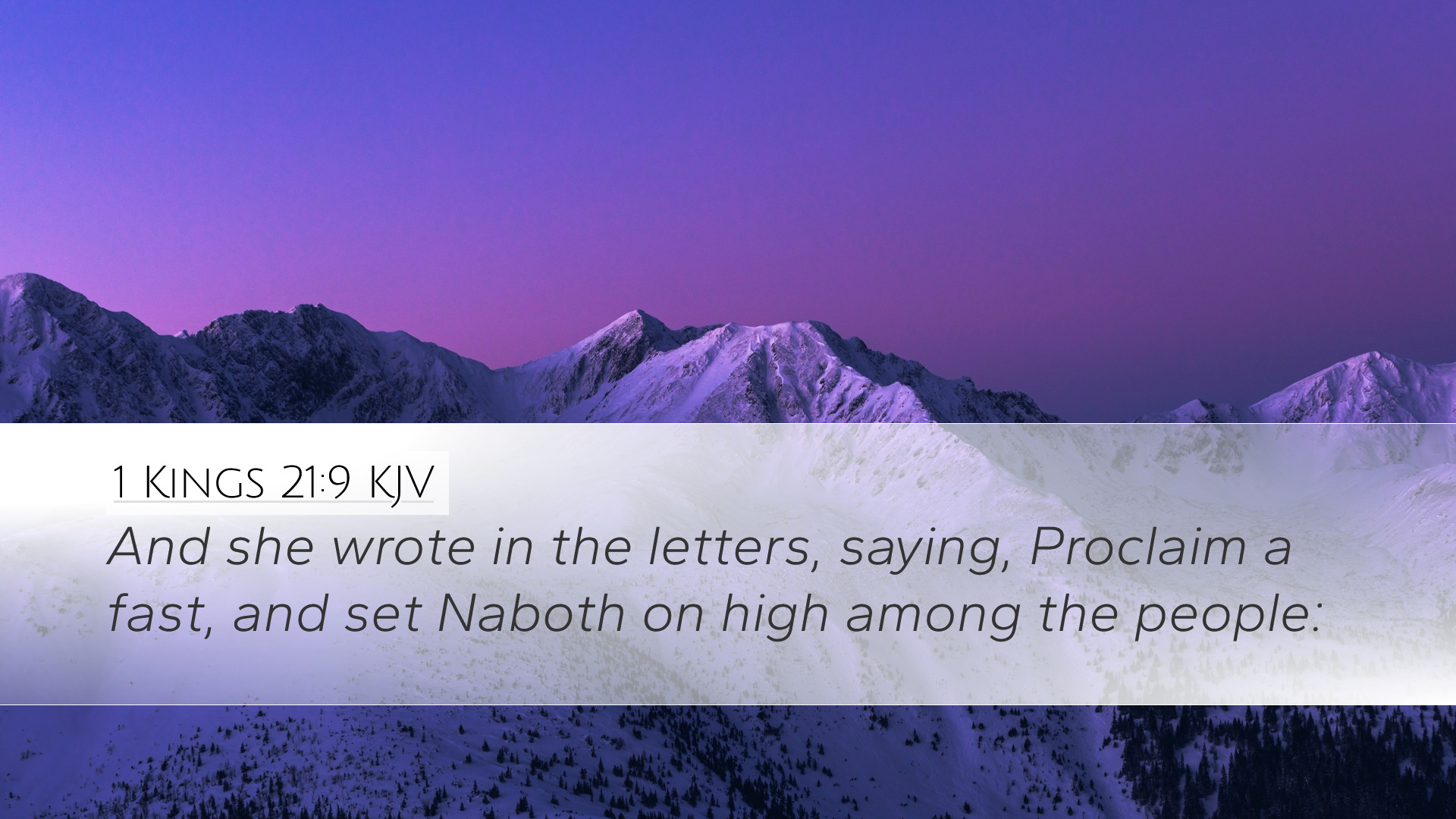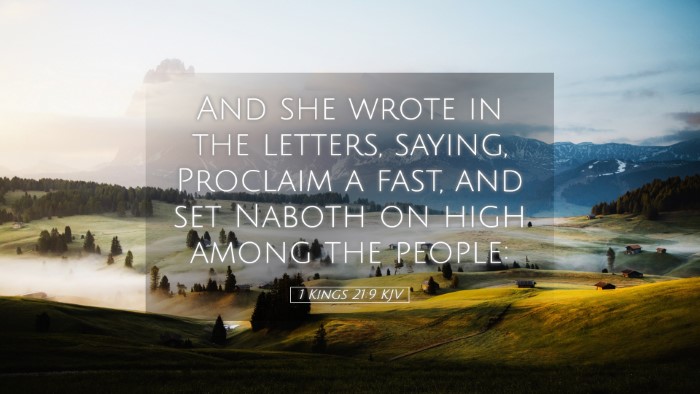Commentary on 1 Kings 21:9
Bible Verse: "And she wrote in the letters, saying, Proclaim a fast, and set Naboth on high among the people."
Introduction
This verse depicts a pivotal moment in the narrative surrounding Naboth's vineyard, showcasing Queen Jezebel's scheming and contrasting the righteousness of Naboth with the moral corruption of the ruling elite. This commentary will explore the implications of this verse by summarizing insights from respected public domain commentators.
Contextual Background
1 Kings 21 narrates the tyrannical behavior of King Ahab and Queen Jezebel, particularly their disregard for divine law as they pursue personal desires at any cost. Their actions against Naboth illustrate the stark conflict between righteousness and wickedness. Understanding the social and historical context is crucial for interpreting the appalling lengths to which Jezebel would go to secure Naboth’s vineyard for her husband, Ahab.
Queen Jezebel's Deception
According to Matthew Henry, this verse encapsulates the malice of Jezebel and her utter contempt for God's law. She exploits the authority of letters to falsely accuse Naboth, using the proclamation of a fast—a traditional act of communal repentance or mourning—as a pretext for her scheme. The fast serves a sinister purpose here, cloaked in the garment of piety, yet intended to mask her wicked intentions.
The Role of Fasting
In biblical context, fasting is often associated with humility and prayer, aimed at seeking God’s favor or intervention. Albert Barnes notes the ironic use of fasting in this story: Jezebel’s proclamation of a fast intends to appear righteous while contriving evil. This hypocritical act underscores the tension between outward religious observance and genuine moral integrity.
Naboth's Position
The act of setting Naboth "on high among the people" is significant. Adam Clarke emphasizes that this elevation is a façade established to validate the charges against him. Naboth, as a man of integrity, represented the voice of God's law against the tyranny of Ahab and Jezebel. By elevating him in public, they aimed to gather support for their malicious intent, showcasing the manipulation of public perception.
Public Deception and Social Manipulation
This narrative demonstrates how powerful individuals can manipulate social structures to achieve their selfish ends. Matthew Henry points out that Jezebel’s actions reflect an understanding of social dynamics; by proclaiming a fast and putting Naboth forward, she crafts a scenario that would deceive the populace and the judicial system alike.
Lessons for Contemporary Believers
- The Danger of Hypocrisy: Believers are cautioned against the danger of hypocritical practices, where outward appearances mask inward corruption.
- The Importance of Upholding Justice: The pressures of authority and the desire for personal gain should never compromise the principles of justice.
- The Impact of Community: Actions carried out in the name of the community can be tools for great evil, reinforcing the need for discernment among believers.
Conclusion
1 Kings 21:9 serves as a poignant reminder of the moral complexities faced in leadership and governance. It illustrates the destructive potential of unchecked power and the necessity for integrity. As we reflect on this passage, may we be encouraged to seek genuine piety and justice, recognizing the dangers of manipulation and the need for standing firm in righteousness.


